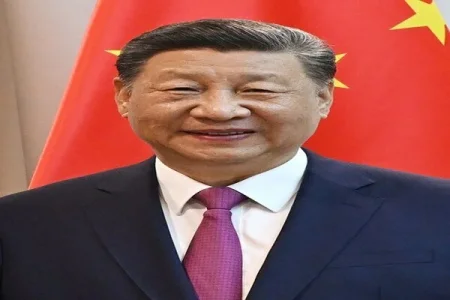
China has sanctioned 28 U.S. companies, including Boeing, Raytheon, and Lockheed Martin, citing national security concerns. The export of dual-use items has been restricted, and 10 firms face operational bans in China. This move escalates trade tensions between the two nations, highlighting a deepening economic and political rivalry.
China has imposed sanctions on 28 American companies, including Boeing, Raytheon, and Lockheed Martin, citing concerns over national security. These measures, announced by the Chinese Ministry of Commerce, include restricting exports of dual-use items—goods with both civilian and military applications—and blacklisting 10 firms involved in arms sales to Taiwan.
The blacklisted companies face severe restrictions, such as bans on conducting business in China and prohibitions on their executives entering or residing in the country. Analysts suggest these actions signal China’s readiness to retaliate amid ongoing tensions with the United States.
Beijing's move comes as trade relations between the two nations continue to sour. Chinese authorities have recently tightened controls on critical resources, including rare minerals, and launched investigations into U.S. tech firms like Nvidia. These actions mirror U.S. sanctions targeting Chinese companies, particularly those involved in dual-use technologies.
Experts believe the sanctions are largely symbolic, given the limited presence of many blacklisted firms in China. However, the growing frequency of such measures reflects an intensifying economic and political rivalry. Andrew Gilholm, an analyst at Control Risks, noted the broadening scope of China’s countermeasures, emphasizing their potential to disrupt global supply chains.
This latest development underscores the escalating tit-for-tat dynamics between Beijing and Washington, with both sides leveraging trade restrictions as tools in their geopolitical standoff. Observers anticipate further actions as the rivalry between the two superpowers deepens.




